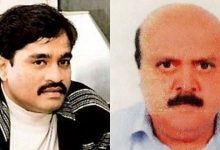The Telangana leader has increasingly given himself the appearance of a change-maker on the national stage though questions are raised as to how far he can take his ambitions forward. He is now calling for vesting States with more powers, deleting the concurrent list, limiting the Centre’s powers in the areas of defence and national security, finance and external affairs. A political analysis, for Different Truths.
The majoritarian BJP led by Prime Minister Narendra Modi is now embroiled in the complicated power games playing out in the South, where it still remains a party of the North, until it gains a beach-head, wielding the power of some sort either by itself or in uneasy coalition in some state or the other.
One such experiment, BJP-Telugu Desam (TDP) in Andhra Pradesh has just failed, crucially in the run-up to 2019 Lok Sabha elections, instantly transforming the celebratory mood of BJP over its victory in North-East which, Prime Minister Modi, had hailed as paradigm change – beating the Left bastion in Tripura, and claiming the country was headed for integration. News from Rajasthan with further Congress gains in local elections was also discomforting.
What is more, the victory celebrations turned into an eruption of a statue war – the rightists pulling down and defacing the statue of the revolutionary leader Lenin, in a part of Tripura, and the enraged leftists had their revenge on the statue of BJP icon. Dr. Shyama Prasad Mookherji in Kolkata. On the day, a similar scene was enacted in Vellore (Tamil Nadu) where the statue of the venerable leader of Tamils, “Periyar” (E V Ramaswamy Naicker) was brought down and disfigured on an inspiration drawn from a tweet of a state BJP leader.
For once, the Prime Minister promptly called for an end to such acts of disfigurements of statues of leaders of the past and urged stern action by the Home Ministry and state authorities against the culprits.”Periyar” had led the self-respect movement of Tamils and founded the Justice Party which became the fore-runner of DMK and AIDMK which have ruled Tamil Nadu from 1967 for over 50 years now. Tamil Nadu is also a key state for Lok Sabha poll with its 39 seats.
Modi’s NDA began unravelling on March 8 with two Andhra Pradesh Ministers of TDP quitting the Modi Cabinet over Centre’s rejection of “Special Category” Status for their State. Such status was envisaged when the integrated Andhra Pradesh was bifurcated in 2014 into Telangana with Hyderabad as capital and coastal Andhra Pradesh with Rayalaseema, yet to build a new capital.
While the Centre has categorically ruled out SCS for AP, with the Finance Minister Jaitley indirectly hinting Bihar and Jharkhand make similar claims, veteran AP Chief Minister Chandrababu Naidu may no longer take any bait Modi may contrive to overcome this major embarrassment for him.
Astute as he is, Naidu, the senior-most among regional leaders in power, may have also run into a corner in his feud with the Centre, given his promises to the people of unveiling a golden era in the truncated state, banking on largesse from the Centre. AP is already in fiscal deficits and rising debts. The planned new capital at Amaravati, for which land has been acquired at great cost, would require massive outlays for the next few years.
While Naidu’s premise of substantial funding from the Centre seems shaken, any climb-down on his part on the quantum of financial transfers needed, including for the prestigious Polavaram project, would make him vulnerable to a strong offensive by his adversary, Jaganmohan Reddy, the YSR Congress leader, with his own calculations for power in 2019.
The Lok Sabha budget session, which reassembled on March 5, has been paralysed without transacting regular business in its first week with the agitations inside the House by AP and Telangana MPs. While Andhra MPs demand special category status, the Telangana MPs are calling, at the behest of their Chief Minister K Chandrasekar Rao (TRS), amending the Constitution to empower states to grant additional reservations for the excluded including Muslims in particular.
Rao, firmly in the saddle even as the desperate Congress makes a power bid with a bus yatra has proposed a national Third Front of non-BJP, non-Congress parties. The move has been endorsed notably by Mamata Banerjee, Trinamool Chief Minister of West Bengal. Rao plans a ‘Bharat Yatra” to galvanise regional parties opposed to both Congress and BJP for such a Front.
The Telangana leader has increasingly given himself the appearance of a change-maker on the national stage though questions are raised as to how far he can take his ambitions forward. He is now calling for vesting States with more powers, deleting the concurrent list, limiting the Centre’s powers in the areas of defence and national security, finance and external affairs.
But some credit is also given to him in political circles for having stolen a march over the veteran Chandrababu Naidu, given the latter’s own inclinations toward a Third Front. But unlike Rao, Naidu may command wider acceptance to lead the Third Front, if he chooses to opt for it in case his party has to quit NDA finally. Would the Prime Minister be able to arrest the ongoing rift in NDA?
Tamil Nadu has its own paradox with two film super-stars floating parties of their own, each hoping to fill the “political vacuum” in the wake of the demise of AIADMK leader Jayalalithaa and the DMK supremo having been incapacitated by old age problems. Both Rajnikanth and Kamal Hassan have not outlined any clear paths on Tamil Nadu development beyond their commitment to fighting corruption.
It is too early to predict possible line-ups in Tamil Nadu for the Lok Sabha poll while the state elections are due only in 2021 unless the present dispensation collapses and a new election becomes necessary. Jaya’s AIADMK was formidable and the party is now reduced to factions. The DMK alliance in opposition remains solid (98 in a House of 232).
All this presents a conundrum for the BJP in its race for numbers in 2019 in southern states to make up for losses in the North. Of a total of 109 seats in the four southern states (other than Kerala), Modi had bagged 28 in 2014, 17 of which was from Karnataka where BJP was in power till 2013 but ousted with a label of corruption. In 2018, the Congress Government headed by Siddharamiah strikes greater confidence of continuance for a second term in the forthcoming elections (before the end of May).
S. Sethuraman
©IPA Service
Photo from the Internet





 By
By
 By
By

 By
By